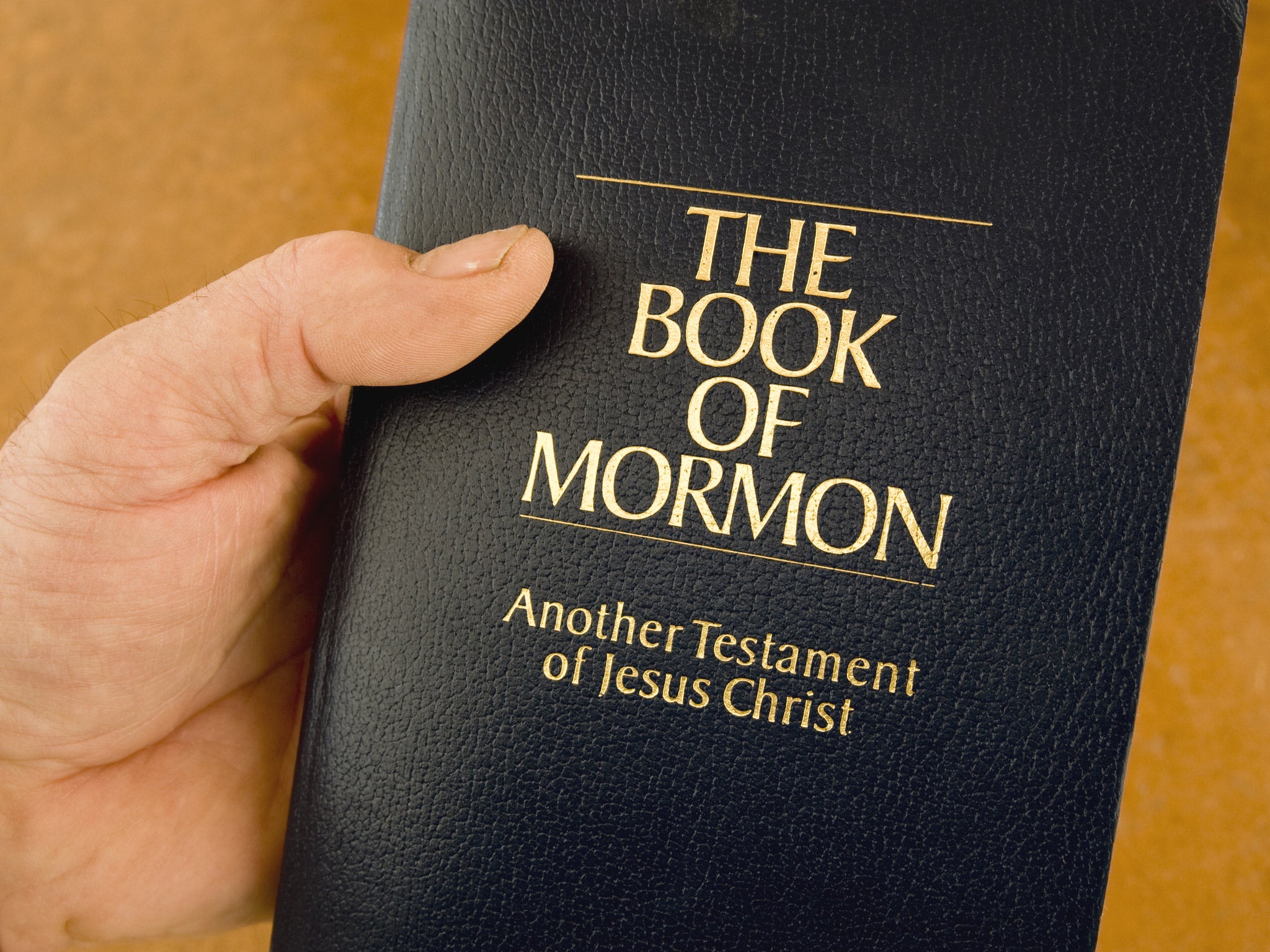Schizophrenic man who believes he is a prophet can donate thousands of pounds to the Mormon Church, Court of Protection rules

Your support helps us to tell the story
From reproductive rights to climate change to Big Tech, The Independent is on the ground when the story is developing. Whether it's investigating the financials of Elon Musk's pro-Trump PAC or producing our latest documentary, 'The A Word', which shines a light on the American women fighting for reproductive rights, we know how important it is to parse out the facts from the messaging.
At such a critical moment in US history, we need reporters on the ground. Your donation allows us to keep sending journalists to speak to both sides of the story.
The Independent is trusted by Americans across the entire political spectrum. And unlike many other quality news outlets, we choose not to lock Americans out of our reporting and analysis with paywalls. We believe quality journalism should be available to everyone, paid for by those who can afford it.
Your support makes all the difference.A man with schizophrenia who believes he is a prophet should be free to donate thousands of pounds to the Mormon church, a Court of Protection judge has ruled.
The man, known only as MS, wants to donate almost £7,000 of inheritance to the Church of Latter Day Saints. The 40-year-old, whose mother strongly opposes the donation, lives in supported accommodation.
Setting out his arguments in a 14-page letter to the court, MS described his belief that he was a prophet whose religious significance was second only to the Holy Trinity. He admitted that these claims meant he had “a Mount Everest of a credibility problem”.
MS inherited almost £70,000 from his late father’s will several years ago and decided that he wanted to pay 10 per cent of that inheritance to the Church of Latter Day Saints as a tithe. Mrs S said her son’s wish to pay such large sums to the church sprung from his delusions and would mean either his family or the state would soon have to pay for his care.
An unnamed county council acting as his deputy approached the court to rule on the issue because MS and his mother’s feelings on the matter were so opposed. The local authority also pointed out that the substantial donation would mean MS would need to claim state benefits 56 weeks sooner than had he not made it.
MS is not actually a member of the Mormon church, because the church will not allow it, though he refused to tell the court why that was. The court was first asked to intervene in the case last year and examine whether MS had the capacity to make the donation and decide his own financial affairs.
In his letter to the court, MS said: “Giving a 10 per cent tithe is an Old and New Testament principle that is practised in my church… We are commanded to do it! Yes, I am not a member of my church - in this world - nevertheless, I believe it is busybodyism of a gross and outrageous sort… to deny me the sacred privilege of giving to my church as I see fit, and in accordance with my church’s understanding of tithing.”
On his own religious standing, MS said: “I claim that only the Father, Son and Holy Ghost are greater beings than I am. Parenthetically, I have never claimed to wield as much as, or almost as much power as, they - this is manifestly not so. I do however believe, by revelation and inference, that if I prove faithful, I will after Judgement Day wield as much, or almost as much power as they presently do… In making this claim, I have a Mount Everest of a credibility problem.”
In a judgement published today, District Judge Anselm Eldergill ruled that MS was free to make the donation and manage his own financial affairs. “Good reasons are required to interfere in matters of conscience and spiritual belief,” he said.
Justice Eldergill said there was a risk in the case of “pathologising religious beliefs,” adding: “The fact that a person has a grandiose belief with a religious content does not demonstrate that the whole of their religion is delusionally based and caused by mental illness... Contrary to the opinions of the psychiatrists in the case, I have taken the view that he does have capacity to litigate the proceedings before me”
A certificate from a psychiatrist who examined MS in 2006 said the man had suffered from a schizoaffective disorder since around 1991 and as a result lacked the capacity to manage his own property and affairs. The psychiatrist said: “Mr S has always lived with his mother who has been his main carer. His beliefs include that he is one position below the Holy Trinity and so has special powers to change the world. Although he has never acted upon this belief, he has given considerable amounts of money to his church disregarding his own needs. He has periods when he feels he must starve himself.”
Join our commenting forum
Join thought-provoking conversations, follow other Independent readers and see their replies
Comments